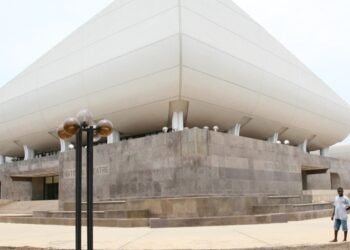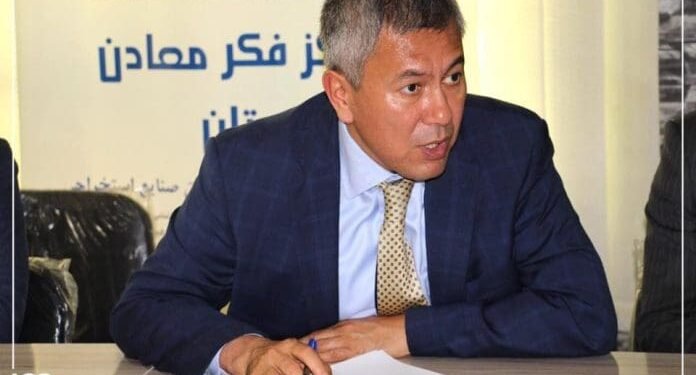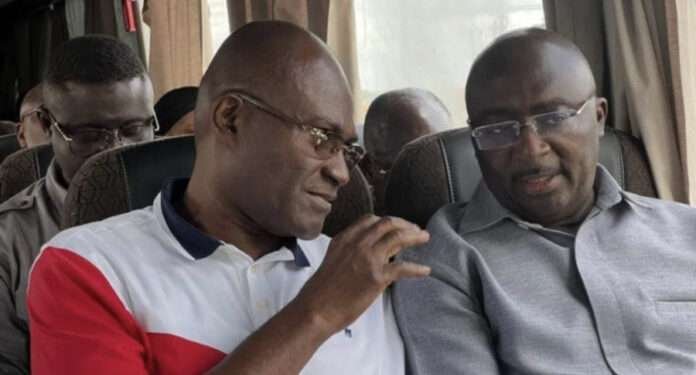In recent years, the phenomenon of emigration has become a common narrative among young Ghanaians seeking better opportunities abroad.
The allure of developed nations often clouds the potential that lies within Ghana itself.
However, the solution to this dilemma does not solely rest on seeking opportunities overseas; rather, it begins with a collective commitment to pray for, support, and actively participate in Ghana’s development.
By fostering a culture of hope and resilience, Ghanaians create an environment that is conducive to growth, thereby reducing the need for their citizens to look beyond their borders for fulfillment.
Gospel musician Cecilia Marfo has urged Ghanaians to prioritize prayer for the nation’s development rather than seeking pastures abroad.
She said at the wreath-laying ceremony held at the Ceremonial Garden of the Jubilee House in Accra, in honor of eight individuals, including two ministers, who died in a helicopter crash on August 6.
“We need God’s intervention for Ghana to develop. If we were developed, there would be no need to travel abroad. Let’s pray for our leaders to succeed. This nation will rise through prayer. Without divine direction, we may continue to struggle, but with prayer, transformation is possible.”
Cecilia Marfo
Marfo emphasized that a developed nation benefits all its citizens and urged the public to support national growth efforts through spiritual commitment and unity.
Prayer has long been a cornerstone of Ghanaian culture, uniting people in shared hopes and aspirations. It serves as a powerful reminder of the community’s collective strength.
When Ghanaians come together in prayer for their nation’s development, they are not only invoking divine intervention but also fostering a spirit of unity and purpose.
This communal approach inspires individuals to take action, whether through volunteering, participating in local governance, or investing in community projects.
As the saying goes, “Faith without works is dead.” Therefore, prayer must be coupled with tangible efforts to bring about change.
Harnessing Local Resources for Sustainable Development

Ghana is rich in natural resources, culture, and human capital. However, much of this potential remains untapped due to inadequate infrastructure, poor governance, and limited investment.
By focusing on local resource management and sustainable development practices, Ghanaians create jobs, stimulate economic growth, and enhance living standards.
For instance, investing in agriculture, which employs a significant portion of the population, leads to food security and increased export potential.
Furthermore, promoting local industries reduces reliance on imports, fostering a self-sufficient economy. When citizens witness the fruits of their labor and the progress of their nation, the desire to seek opportunities abroad diminishes.
Education is a critical factor in national development. By prioritizing quality education and vocational training, Ghana equips its youth with the skills needed to thrive in a competitive global market.
Encouraging a culture of innovation and entrepreneurship within educational institutions empowers young Ghanaians to create their own opportunities at home.
Initiatives that connect students with local businesses bridge the gap between education and employment, ensuring that graduates are prepared to contribute meaningfully to the economy.
When young people see viable career paths within their own country, the temptation to migrate for better prospects fades.
Strengthening Governance and Civic Engagement

Effective governance is essential for development. Ghanaians must hold their leaders accountable and advocate for policies that promote transparency, equity, and social justice.
Civic engagement is crucial in this regard. By participating in local governance and community initiatives, citizens influence decisions that affect their lives and the future of their nation.
When people feel empowered and see their voices reflected in policy, they are more likely to invest in their communities and work towards collective growth.
A strong democratic framework fosters trust in national institutions, encouraging citizens to stay and contribute to the development of their homeland.
While the desire to travel abroad for better opportunities is a natural human inclination, Ghanaians must recognize the potential for growth and fulfillment within their own country.
By combining prayer with proactive engagement in national development, Ghanaians create an environment where citizens thrive locally.
Through harnessing local resources, prioritizing education, and strengthening governance, the nation fosters self-sufficiency and resilience.
Let us unite in prayer and action for Ghana’s development, transforming aspirations into reality and ensuring that the need to seek opportunities abroad becomes a thing of the past. Together, Ghanaians build a brighter future for generations to come.
READ ALSO: Helicopter Crash: Academy of Forensic Sciences Pushes for National Forensic Policy























